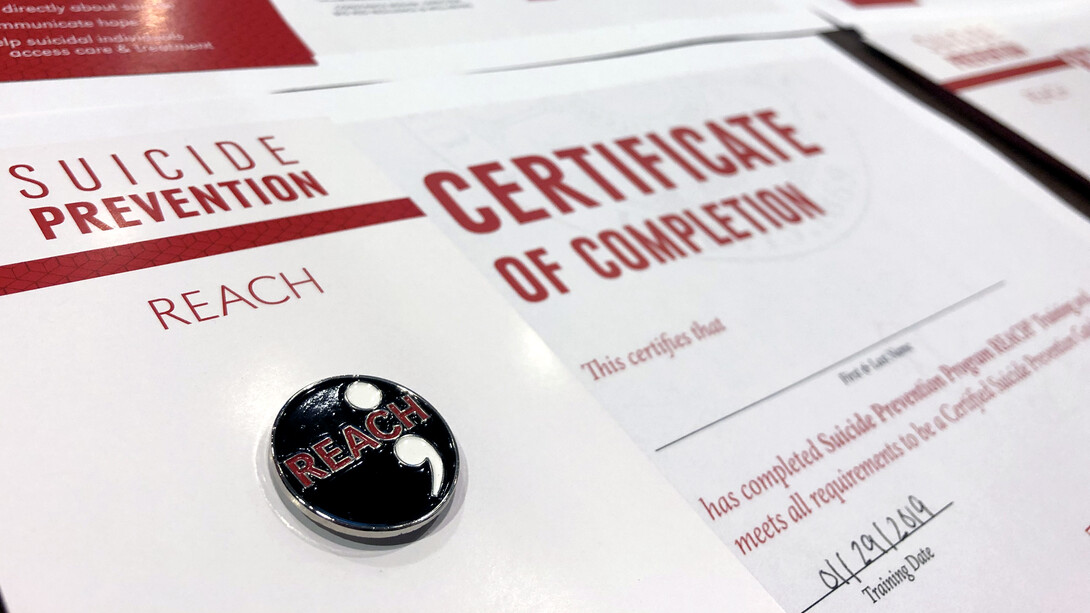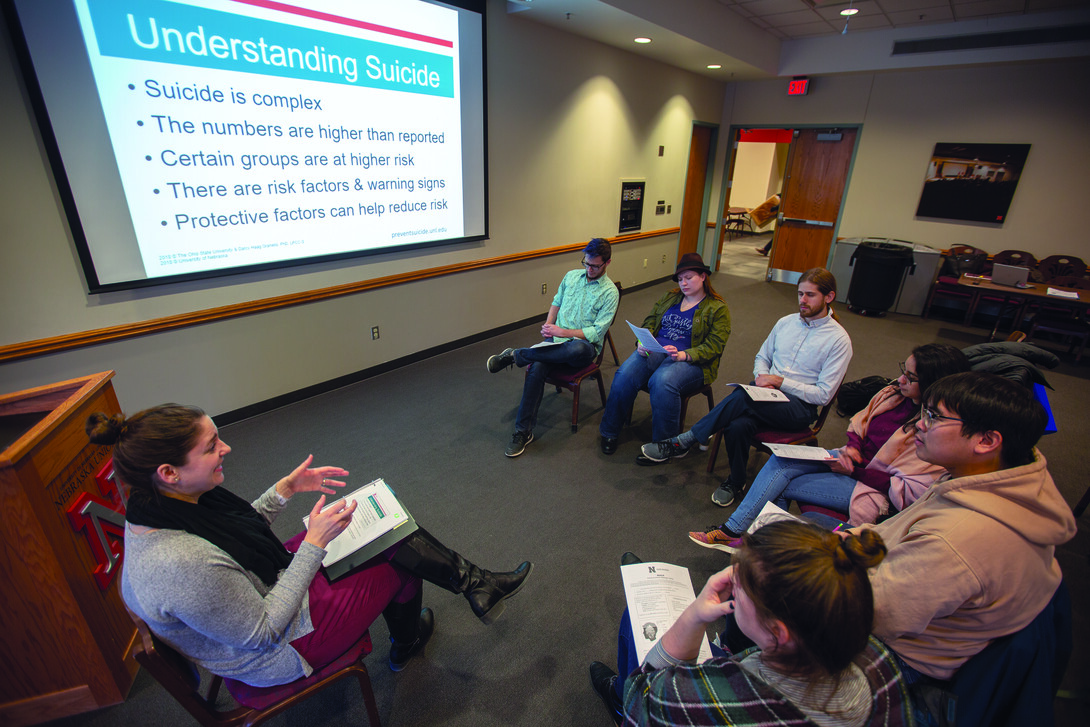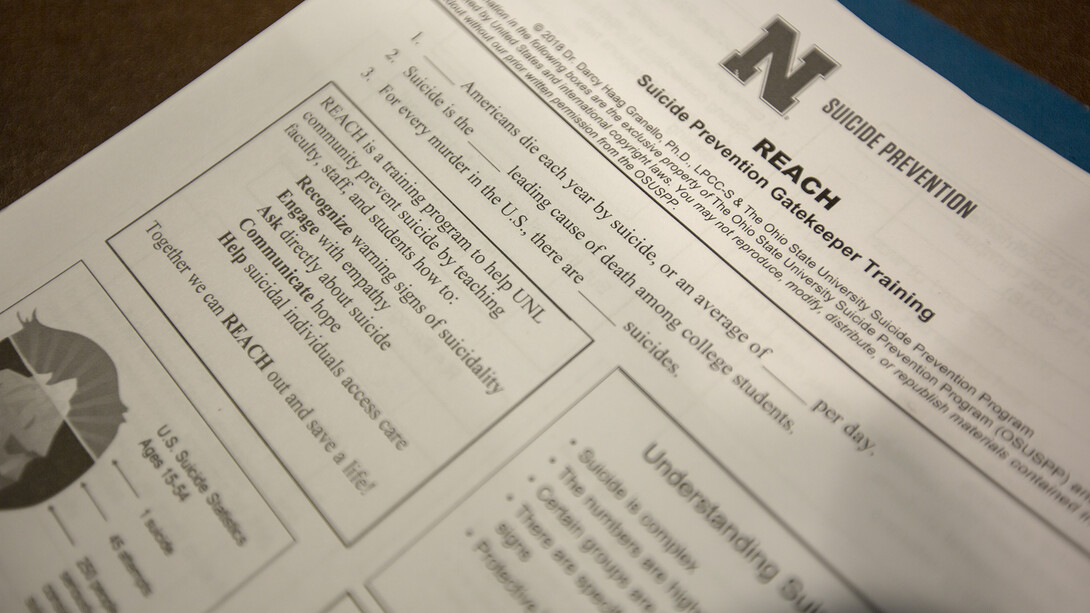
The University of Nebraska–Lincoln is using a federal award to strengthen mental health services and suicide prevention programming on campus.
Announced in December, the three-year, $300,000 Garrett Lee Smith Suicide Prevention grant will help Nebraska officials develop a program to address student concerns, providing consistent mental health and suicide screening options.
Nebraska’s Big Red Resilience and Well-being program will lead the effort, directing campuswide programming and specialized training sessions this spring. In partnership, the University of Nebraska Public Policy Center will develop and implement an evaluation plan for the overall initiative.
“In three years, when this grant is complete, the university will have a cohort of students, faculty and staff who are trained specifically to recognize signs related to mental health issues and empowered to reach out to help others,” said Connie Boehm, director of Big Red Resilience and Well-being. “The goal is to create an expanded culture of caring across the entire university.”

The first step in the program will come this spring as some 1,500 campus volunteers will be trained in the REACH suicide prevention method.
Developed by Ohio State University, the five-step REACH program is designed to teach participants how to: Recognize warning signs; Engage with empathy; Ask directly about suicide; Communicate hope; and Help suicidal individuals to access care and treatment. Individuals who complete the 90-minute training program are called gatekeepers.
Boehm said Nebraska has nearly 400 trained gatekeepers available on campus.
“The program is intended to empower individuals with the information they need to reach out and help others,” said Laura Shell, a program coordinator with Big Red Resilience. “The training makes you more comfortable in approaching someone who may be struggling and increase confidence in knowing where to turn when someone needs assistance.”
Nebraska is one of 19 schools nationwide to receive the grant from the Substance Abuse and Mental Health Services Administration. The grant is named in honor of Garrett Lee Smith, an Oregon student who died by suicide in 2003.

Suicide is the second leading cause of death in college students nationwide. Following national trends, the University of Nebraska–Lincoln has tracked growth in the number of mental health investigations completed by University Police and student clients using the CAPS program.
Between 2012 and 2016, use of the CAPS program has grown from 1,500 students to more than 2,000. And University Police investigations into mental health cases increased from 23 in 2013 to 69 in 2017.
“There is a growing need for mental health services nationwide as students today are confronted with different pressures than we faced in the past,” Boehm said. “This grant comes at a good time and will help us bridge some gaps and help our students better understand that help is available to them.”
The grant will provide additional training for counselors in the university’s Counseling and Psychological Services program. And, Boehm said the funds also will help create a more formal organization between the university and mental health providers in the community.
Training session for the REACH program are available for free to university- and student-affiliated organizations, departments and units. Training sessions can be requested online.







